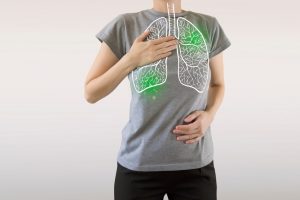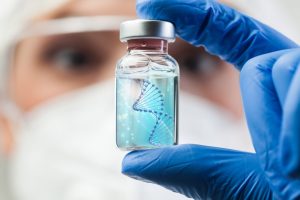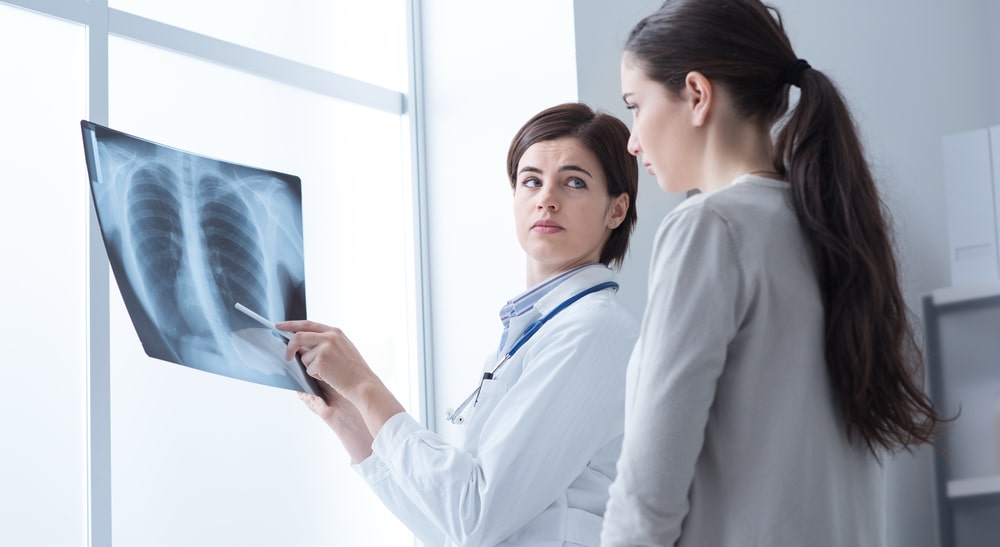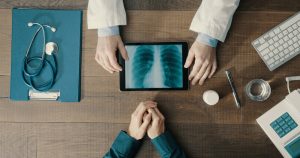Learn what Triggers Lung Cancer and Find a Cure to it!
Did you know that over 154,000 people died because of lung cancer in the U.S. this year? The American Cancer Society speculates that approximately 244,000 new cases are expected to occur, making cancer of the lungs one of the most life-threatening diseases in the world. Read on to know how you can prevent it?
Around 6.5% of adults, according to the National Cancer Institute, USA, are diagnosed with lung cancer at some point in their life. This conclusion is drawn based on the data gathered between 2011 and 2013. The worst part is that the survivors of this disease are likely to relapse; developing cancerous symptoms the second time.
The risks are low-key, barely 1%-2% in the case of NSCLCs (Non-small Cell Lung Cancers), but they shoot up to 6% in the case of SCLCs (Small Cell Lung Cancers). And, this is precisely why you should know all about it, to save your life and the ones around you. (Source: Medicine Net)
What is Lung Cancer?

Exchanging gases between the blood and the air we breathe is the primary function of our lungs. Lungs branch out into lobes, air tubes (bronchi and bronchioles) and alveoli (air sacs) that are involved in this gaseous exchange. They are covered by a thin, protective layer called pleura.
Normally, our body initiates and regulates a systematic process of cell division to replace old and worn down cells in the major organs. Sometimes, disruptions in this process may trigger an abnormal proliferation of cells resulting from uncontrolled cell division in the respiratory cells. This causes a tumor that may finally result in lung cancer.
Cancer may affect any part of the lungs but 90%-95% of these cases occur in the protective epithelial cells around the lungs. If you know how to detect the symptoms, you can easily control it.
Know the Risk Factors:
Smoking/ Passive Smoking:

Nicotine consumption in any form, whether it is smoking cigarettes, hookah or being around smokers, triggers abnormal cell division in the lung cells.
Tobacco contains over 4,000 fatal ingredients that are either carcinogens (cancer-causing agents) or produce chemical reactions in the body thus, affecting your health. (Anti-smoking Nicotine Gum)
Air Pollution/ Prolonged Exposure to Poisonous Particles:
The air we breathe contains poisonous gases and particulate matter that may affect our lungs.
Diesel exhaust, soot, radon gas, asbestos fibers, lead, etc. may reduce oxygen transfer in the body thereby causing the lungs to initiate cell division.
Genetics:

Studies show that sometimes even the smokers do not develop lung cancer due to individual genetic susceptibility.
However, people who inherit poor genes (linked to cell development and DNA repair) are more susceptible to developing cancer.
Familiar predisposition that is being related to or living closer to the patients diagnosed with cancer makes individuals more vulnerable to the disease.
Lung Diseases/ Weak Lungs:
People who already are suffering from fatal lung disorders like asthma, pulmonary fibrosis, bronchitis or COPD (Chronic Obstructive Pulmonary Disease) are at greater risk.
(Source: Medicine Net Plus)
Symptoms of Lung Cancer:

Early Symptoms include—
- Persistent coughs
- Hoarseness
- Wheezing
- Short breaths
- Coughing up blood or phlegm
- Lack of appetite
- Weight loss
- Fatigue
- Weakness.
As it spreads to other parts, it may cause—
- Lump formation in the lymph nodes of the collarbone or neck.
- Body pain, headache, loss of balance, dizziness, numbness in arms or legs (because of poor coordination between the brain and spine).
- Pain in the ribs, hips, and back.
- Yellowing of the skin and eyes.
- Jaundice or damage to the liver.
Sometimes, cells affected by lung cancer produce a hormone-like substance that triggers changes in the functioning of the body (also known as the paraneoplastic syndrome).
The symptoms are—
- Vomiting
- Nausea
- Muscle weakness
- Fluid retention
- High blood sugar
- Hypertension
- Seizures
- Confusion
- Coma-like condition.
Diagnosing Lung Cancer:
Doctors conduct several tests like a low-dose CT scan, chest X-ray, LDCT (Low-Dose Computed Tomography), MRI (Magnetic Resource Imaging), PET (Positron Emission Tomography), Needle Biopsy and Sputum Cytology to detect the disease. (Source: Lung.com)
Lung Cancer Cure?

Complete cure is possible with early screening and diagnosis.
1. Chemotherapy:
Chemotherapy involves prescribing drugs that stop the cell division process. Medicines like Gefitinib (Iressa), Afatinib (Gilotrif) and Tarceva (Erlotinib) target and check cancer cells from spreading.
2. Radiation Therapy:
Brachytherapy or radiation therapy involves pelleting of radioactive materials inside the lungs directly on the affected cells or into the airway next to the tumor, using a bronchoscope. X-rays and other types of radiation play a pivotal role in killing cancer-affected cells.
3. Surgery:
About 10%-35% of tumorous cells can be removed surgically at Stage I and sometimes at Stage II. Surgeons perform either of these functions—
- Lobectomy (removing one of the lobes)
- Wedge resection (removing a portion of one of the lung lobes)
- Lymphadenectomy (removing cancer affected lymph nodes).
How to Prevent Lung Cancer?

- Avoid using alcohol, cigarettes, hash and any other by-products of tobacco.
- Always use a mask when walking through pollution-prone areas or while working in the factories.
- Including physical exercise (for at least one hour), fresh fruits and vegetables in your daily diet.
- Avoid hanging out with people who smoke or do hookahs.
- Check your surroundings for radiation and other chemicals. You can use a home radon test kit for this purpose.
- Visit your doctor on a regular basis for a follow-up.
- Make sure that you take your medicines on time. (Source: Mayo Clinic)
Lung cancer is easily preventable if you stay alert and avoid all possibilities that can trigger cell division. Talk to a pharmacist at MedsEngage and discuss medicines, precautions, and cure to keep this lethal disease at bay.

